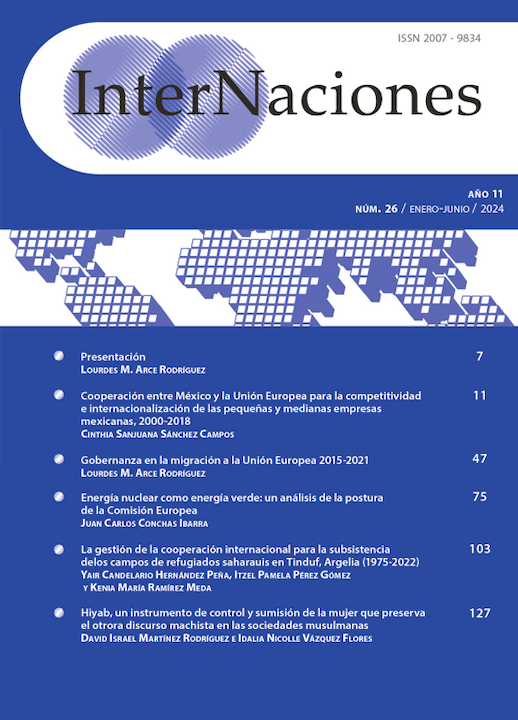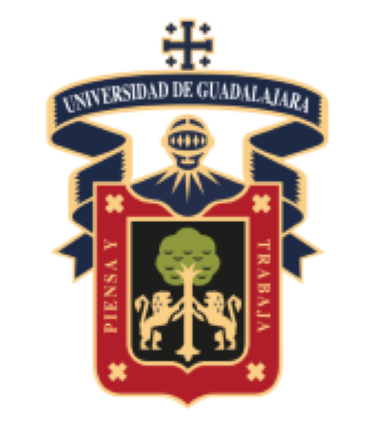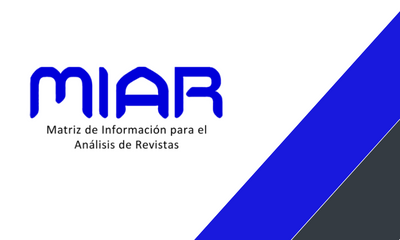Nuclear energy as green energy: an analysis of the position of the European Commission
DOI:
https://doi.org/10.32870/in.vi26.7244Keywords:
nuclear energy, green energy, life cycle, environmental impact, energy transitionAbstract
Nuclear energy is one of the most controversial forms of generating energy due to the stigma that has developed as a result of environmental disasters in some environmental plants such as Chernobyl and Fukushima, the European Commission in 2020 a technical report on the impact of forms used by human beings for energy supply, later, nuclear energy was classified as green energy, an act that was soon questioned with great rejection by some states in the European Union. This paper analyzes part of the empirical evidence presented by said report and the position of some experts and governments in order to provide the reader with a clear and simple overview of the convenience of using nuclear energy as an alternative to insufficient energy supply of existing renewable energies and how it can contribute to the energy transition.Downloads
References
Bruckner T. (2014), Technology-specific Cost and Performance Parameters, annex III,
https://www.ipcc.ch/site/assets/uploads/2018/02/ipcc_wg3_ar5_annex-iii.pdf
Castiñeiras, D. F. (2022, 27 abril). Nuclear y gas: fuentes de energía 'verde'. . . según Europa. Climática.
https://www.climatica.lamarea.com/especial-energia-nuclear-gas/
Carnal A. (2014), La energía nuclear en Europa después de Fukushima, Análisis GESI, 33/2014
https://www.ugr.es/~gesi/analisis/33-2014.pdf
Deutsche Welle (www.dw.com). (2022b, abril 4). Nord Stream 2 | DW | 04.04.2022. DW.COM. https://www.dw.com/es/nord-stream-2/t-46283405
Deutsche Welle (www.dw.com). (2022, 21 enero). ¿Regresa la energía nuclear en Europa? DW.COM. https://www.dw.com/es/regresa-la-energ%C3%ADa-nuclear-a-europa/a-60520235
European Commision (2013) DIRECTIVA 2013/59/EURATOM DEL CONSEJO
https://eur-lex.europa.eu/legal-content/ES/TXT/PDF/?uri=CELEX:32013L0059&from=ES
European Commission (2020), Technical assessment of nuclear energy with respect to the ‘do no significant harm’ criteria of Regulation (EU) 2020/852 (‘Taxonomy Regulation’)
https://ec.europa.eu/info/sites/default/files/business_economy_euro/banking_and_finance/documents/210329-jrc-report-nuclear-energy-assessment_en.pdf
Gil Pérez, Vilches D. (2004) ¿Es la energía nuclear la solución al cambio climático? Editorial Caderno Brasileiro de Ensino de Física 21 2 141 144
https://roderic.uv.es/bitstream/handle/10550/52358/067952.pdf?sequence=1&isAllowed=y
Morones Ibarra, J. R. (2012). El accidente nuclear de Fukushima. Ingenierías, 15(56), 38-47. http://eprints.uanl.mx/id/eprint/10497
RTVE.es. (2022, 27 abril). La dependencia del gas ruso de Europa y España. https://www.rtve.es/noticias/20220427/dependencia-gas-ruso-europa-espana/2297085.shtml
Santos, I. E. M. Significación epistémica de la hipótesis Gaia para los proyectos de educación ambiental.
Sanz, E. V. F. Y. (2022, 3 enero). Energía nuclear: esperanzas vanas sobre un debate estéril. Climática. https://www.climatica.lamarea.com/energia-nuclear-esperanzas-vanas-debate-esteril/
https://www.researchgate.net/profile/Isidro-Mendez-Santos/publication/332158299_Significacion_epistemica_de_la_hipotesis_Gaia_para_los_proyectos_de_educacion_ambiental_Epistemic_significance_of_the_Gaia_hypothesis_for_environmental_education_projects/links/5ca3c90c92851c8e64aebb23/Significacion-epistemica-de-la-hipotesis-Gaia-para-los-proyectos-de-educacion-ambiental-Epistemic-significance-of-the-Gaia-hypothesis-for-environmental-education-projects.pdf
Downloads
Published
How to Cite
Issue
Section
License
Copyright (c) 2023 University of Guadalajara

This work is licensed under a Creative Commons Attribution-NonCommercial-ShareAlike 4.0 International License.
CC BY-NC-SA 4.0 https://creativecommons.org/licenses/by-nc-sa/4.0/

























